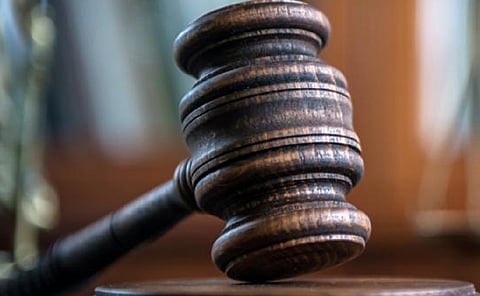

Supreme Court gives Vantara a clean chit, dismissing allegations of animal smuggling, laundering and welfare violations.
SIT probe, aided by multiple central and state agencies, found no breaches of wildlife, trade or financial laws.
Vantara’s facilities deemed to exceed global welfare benchmarks, awarded Global Humane Certified Seal of Approval.
Delhi government files NGT compliance report, ordering GPS-fitted tankers and stricter checks on illegal borewells.
CPCB flags Byrnihat (Assam) as critically polluted; NCAP measures underway to cut particulate matter emissions.
The Supreme Court on September 15, 2025 gave a clean chit to the Greens Zoological Rescue and Rehabilitation Centre and the Radhe Krishna Temple Elephant Trust (Vantara) after considering a Special Investigation Team (SIT) report.
The SIT filed its report and summary with annexures and USB flash drives on September 12. It stated that with the help of multiple central and state agencies, regulatory and enforcement bodies, it had examined reports and affidavits, conducted site visits, obtained expert opinions and granted personal hearings.
The inquiry covered the full range of allegations, not only concerning acquisition of animals, smuggling and laundering, but also welfare and husbandry, conservation and breeding, climatic and locational issues, as well as financial and trade improprieties, the court noted.
A bench comprising Justice Pankaj Mithal and Justice Prasanna B Varale observed that the SIT had coordinated with the Central Zoo Authority (CZA), Wildlife Crime Control Bureau, CITES (Convention on International Trade in Endangered Species of Wild Fauna and Flora) Management Authority of India, Central Bureau of Investigation, Directorate of Enforcement, Directorate of Revenue Intelligence, Customs Department and the jurisdictional police, and had carried out a thorough and extensive investigation into the complaints.
The court order recorded: “The SIT, after thorough investigation in coordination with the above multiple agencies, clearly opined and concluded that there is no violation of the Wild Life (Protection) Act, 1972, the Recognition of Zoo Rules, 2009, CZA guidelines, Customs Act, 1962, Foreign Trade (Development & Regulations) Act, 1992, Foreign Exchange Management Act, 1999, Prevention of Money Laundering Act, 2002, Bharatiya Nyaya Sanhita, 2023, or the CITES.”
On the basis of the SIT report, the SC noted that the receipt of animals by Vantara through rescues and housing them for conservation and breeding had gone through complex multi-layered statutory approvals, procedures and documentation. Imports of animals had been made only after the issuance of valid permits, which could not be disputed once fully documented.
The SIT further concluded that repeated inquiries into Vantara, arising from multiple complaints and petitions over the years, had consistently found no violation of law. The court therefore dismissed allegations of smuggling or laundering as meritless.
On welfare standards, the SIT found that Vantara’s facilities exceeded prescribed benchmarks, with mortality figures aligning with global zoological averages. Independent bodies such as Global Humane Society also certified that Vantara not only complied with but exceeded internationally recognised benchmarks, awarding it the Global Humane Certified Seal of Approval.
The apex court expressed satisfaction with the facilities, noting that in certain respects they surpassed statutory benchmarks. Allegations regarding misuse of carbon credits, water resources or financial impropriety were also found baseless, with the Enforcement Directorate confirming no breach of the Prevention of Money Laundering Act, 2002.
The SC endorsed the SIT’s conclusions, deprecated the aspersions cast on statutory authorities and the judiciary, and accepted the report. The applications were accordingly disposed of.
On September 12, 2025, the Government of National Capital Territory of Delhi filed its reply before the National Green Tribunal (NGT) regarding illegal groundwater extraction. The submission complied with the NGT’s order of May 28, 2025.
The report said that all revenue districts had been directed to take immediate action on complaints about unauthorised borewells in coordination with departments concerned.
The Delhi Jal Board (DJB) informed the tribunal that field and district officers had been instructed to act promptly on such complaints, with identification and sealing of illegal borewells to be completed within one month. Officers were cautioned that any delay or inaction would attract personal liability.
Further, only GPS-fitted water tankers are to be used for supply in Delhi. The Revenue Department issued an order on 12 September requiring all water tankers to be registered with the competent authority and fitted with GPS for monitoring. The order also mandated regular checks on water quality and fixed supply charges.
All drilling machines and rigs must also be registered with the office of the divisional commissioner/deputy commissioner, with movement permitted only for specified purposes and durations. Strict compliance is to be enforced by the Delhi government’s policy and transport department.
On September 15, 2025 , the Central Pollution Control Board (CPCB) submitted a report on measures taken to control air pollution in Byrnihat, a town on the Assam–Meghalaya border.
The Byrnihat Industrial Cluster spans six square kilometres, covering parts of Ri-Bhoi district in Meghalaya and adjoining Assam. Both the Meghalaya State Pollution Control Board (MSPCB) and Assam Pollution Control Board (APCB) monitor air quality in their respective jurisdictions.
Analysis of fine particulate matter or PM2.5 data between January and June 2025 showed that 62 per cent of monitored days in Byrnihat (Meghalaya) were within standards, compared to just 11 per cent in Byrnihat (Assam). Exceedances were recorded for PM10 and PM2.5 in 2024 on both sides, though sulphur dioxide and nitrogen dioxide levels remained within standards.
The CPCB noted that Byrnihat (Assam) has been categorised as a critically polluted area based on its Comprehensive Environmental Pollution Index score. Byrnihat (Meghalaya) has been included in the National Clean Air Programme (NCAP), which aims to reduce particulate matter levels by up to 40 per cent from 2019-20 baselines, or to achieve national standards, by 2025-26.
Measures reported include paving and maintaining roads, greening traffic corridors, developing open spaces and gardens, and implementing detailed action plans for identified pollution hotspots.